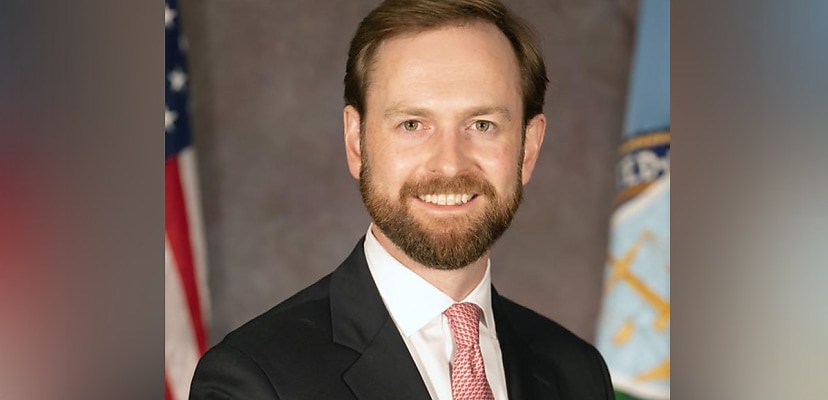Share this article on:
Powered by MOMENTUMMEDIA
Breaking news and updates daily.
The US Federal Trade Commission (FTC) is inviting those who believe they have been censored on social media platforms and more to reach out as they conduct research on censorship of posted content on tech platforms.

The FTC probe is looking to prohibit “potentially illegal” and “un-American” censorship on tech platforms and is inviting users, specifically individuals, to share their experiences.
“Tech firms should not be bullying their users,” said FTC chairman Andrew N. Ferguson. “This inquiry will help the FTC better understand how these firms may have violated the law by silencing and intimidating Americans for speaking their minds.”
Big Tech censorship is not just un-American, it is potentially illegal. The FTC wants your help to investigate these potential violations of the law. We are asking for public submissions from anyone who has been a victim of tech censorship (banning, demonetization, shadow…
— Andrew Ferguson (@AFergusonFTC) February 20, 2025
The probe follows an executive order by US President Donald Trump in January that aims to end censorship and restore free speech.
The FTC said social media platforms could use “confusing or unpredictable internal procedures” that shut down a user’s ability to post, adding that it wants to hear from “anyone who can shed light on these practices and the ways in which they may violate the law”.
Trump himself was removed and banned from Meta’s social media platforms Instagram and Facebook, as well as Twitter before it became owned by Elon Musk and became X, and has accused these companies of violating free speech.
Those who reach out will be asked the following questions:
What specific adverse actions did the platform take?
How and when, if at all, did the platform notify its users about such adverse actions or explain its decisions?
Did the platform adhere to its policies or other public-facing representations?
Did the platform represent, implicitly or explicitly, whether users had the ability to challenge or appeal adverse actions that deny or degrade the affected users’ access to services?
How did the platforms’ adverse actions affect users (including creators of content)?
The FTC said submissions will be made public, including anonymous ones, and that respondents should avoid including any personally identifiable data (PII). Private submissions can also be made on the FTC website.
The announcement closely followed X banning the posting of links from encrypted messaging service Signal.
X users who attempt to post the URL shortener Signal.me that invites users to contact them directly through the messaging service have been blocked by the platform, whether posted through direct messages, posted in profile page descriptions or in public posts.
Users who attempt to post a Signal.me link face a number of errors, including a “message failed” pop-up.
While X has not explained the reason for blocking Signal, the move follows the Musk-led Department of Government Efficiency (DOGE) targeting US federal government agencies in an attempt to cut government expenses. Over 10,000 federal workers have been axed in the process.
Reports suggest that workers from these agencies, including the Department of Education, NASA, USAID and more, have taken to Signal to whistleblow against DOGE as the service is completely private, has end-to-end encryption and stores data on devices rather than on Signal servers. As a result, it’s a popular tool for whistleblowers contacting journalists.
Despite claiming he is a major advocate for free speech and that X is a platform that promotes free speech, X owner, world’s richest man and now right-hand man of Trump, Musk, has been accused of blocking X accounts that disagree or speak out against him. He also frequently critiques publications and people who call him out.
Instead, Musk has defended the posting of violent material and misinformation.
Last year, the Australian eSafety Commissioner called for media giants X and Meta to take down “extreme and gratuitous violent material” relating to the stabbing of Bishop Mar Mari Emmanuel at the Assyrian Christ the Good Shepherd Church in Sydney on 15 April.
X, however, released a statement via its own platform on 20 April, vowing to fight the order.
“The recent attacks in Australia are a horrific assault on free society. Our condolences go out to those who have been affected, and we stand with the Australian people in calling for those responsible to be brought to justice,” X’s Global Government Affairs account said in a post on X.
“Following these events, the Australian eSafety Commissioner ordered X to remove certain posts in Australia that publicly commented on the recent attack against a Christian bishop. These posts did not violate X’s rules on violent speech.
“X believes that eSafety’s order was not within the scope of Australian law, and we complied with the directive pending a legal challenge.”
The legal battle ended with the eSafety Commissioner backing down from the chase but maintaining the takedown order.
Additionally, in the lead-up to the 2024 US election, Musk joined X users in posting misinformation on the platform using his Grok AI.
In a post on his X (formerly Twitter) account, Musk posted an image of former vice president Kamala Harris dressed in a red suit donned with the communist hammer and sickle emblem in response to one of her political campaign ads that said: “Donald Trump vows to be a dictator on day one.”
Alongside the image, Musk wrote: “Kamala vows to be a communist dictator on day one. Can you believe she wears that outfit.”
While Musk does nothing to indicate the image is AI-generated and states that it is Harris wearing the outfit, the image is very obviously AI-generated, barely resembling Harris. Additionally, the claim that she vowed to be a communist dictator has no real source and is thus misinformation.

Be the first to hear the latest developments in the cyber industry.